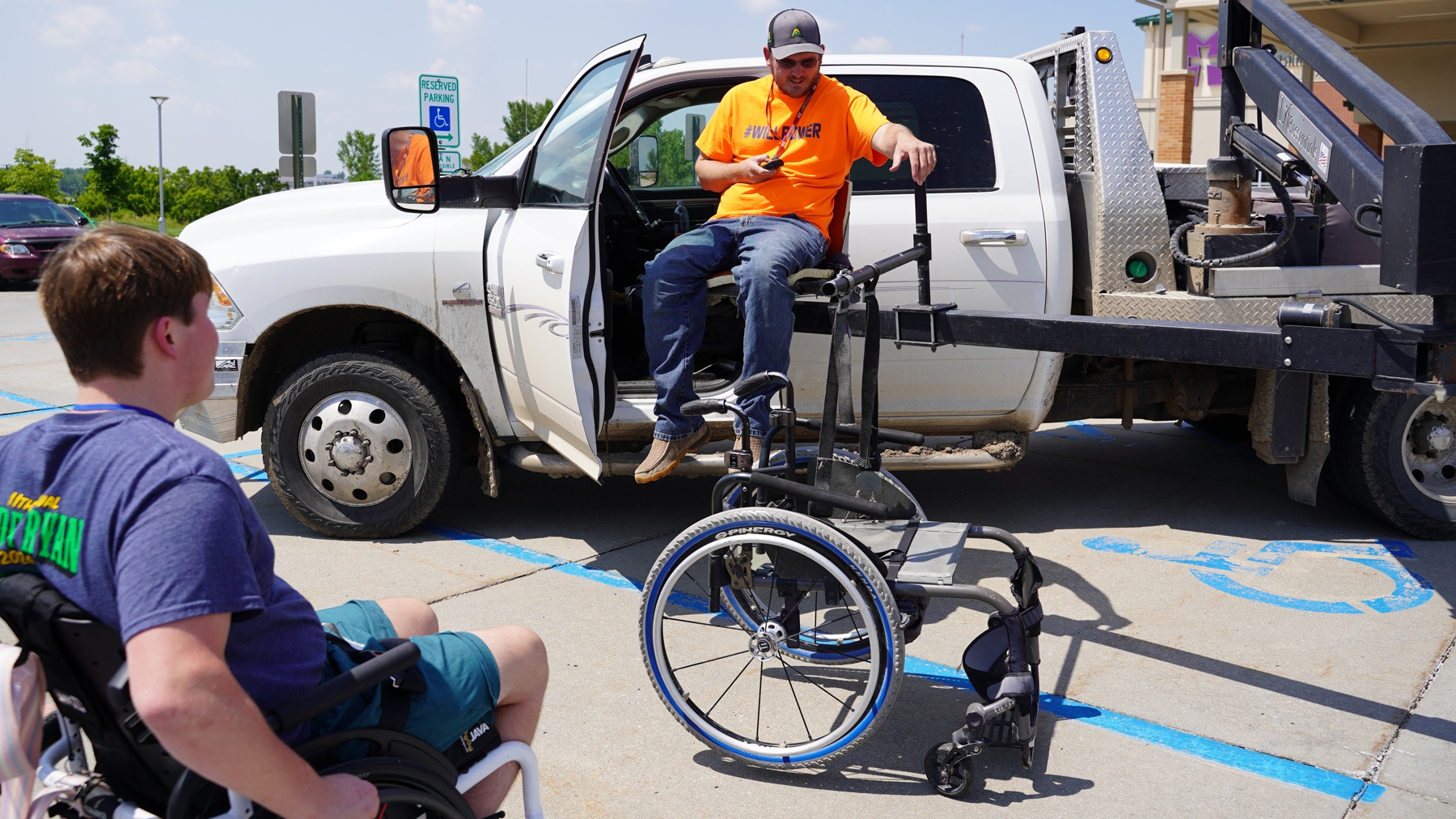Justin Metzger steers a tractor out of his family’s machine shed on a sunny March day near Palmer, Iowa.
“You just pull it out slowly,” he says as he describes the clutch that permits the tractor to go into gear.
There’s a difference, though, between this clutch and others. Metzger, who was paralyzed in a dirt bike accident in May 2024, operates the clutch and other components via hand controls. It’s just one example of how technology helps farmers with a disability farm.
“When I first started with this program about 30 years ago, farmers were individually designing and fabricating everything,” says Tracy Keninger, director of Easterseals Rural Solutions in Iowa.
Will Meyer’s family’s creativity initially was stretched when they designed ways to lift him into farm equipment after he was paralyzed in a March 2015 vehicle accident.
“They’d load me up in the loader bucket of a tractor, put some two-by-fours across to the platform of the other tractor, and roll me across in my wheelchair to get me over there,” the Palmer, Neb., farmer says.
These days, Meyer uses a LifeLyfts by Life Essentials lift that loads him into numerous farm implements that he independently operates.
“It’s a life-changer,” he says.
How to obtain equipment
There’s a hitch, though. Equipment is expensive. The truck pilot lift that enables Justin to enter machinery cabs has a manufactured suggested retail price of $51,900 with another $4,950 for installation.
“Then you have to have a vehicle and flatbed to put it on,” says Justin’s mother, Kelly. “Expenses quickly add up.”
Although insurance covers some equipment, it doesn’t cover everything. “We start the [equipment] process early and work with community outreach to help cover these costs,” says Jessie Franks, a recreation therapist at Madonna Rehabilitation Hospitals in Omaha, Neb.
Fundraisers are one way to garner funds to purchase equipment. Last November, the Manson Northwest Webster FFA chapter held a donkey basketball fundraiser that the Metzgers used to buy the truck pilot lift.
 LIFT DEMONSTRATION: Will Meyer, a Palmer, Neb., farmer, visited Justin Metzger at Madonna Rehabilitation Hospitals to demonstrate a LifeLyfts by Life Essentials lift he uses to get into farm implements. “It’s a life-changer,” Meyer says. Metzger now uses a truck pilot lift from the company that enables him to enter machinery cabs. (Madonna Rehabilitation Hospitals)
LIFT DEMONSTRATION: Will Meyer, a Palmer, Neb., farmer, visited Justin Metzger at Madonna Rehabilitation Hospitals to demonstrate a LifeLyfts by Life Essentials lift he uses to get into farm implements. “It’s a life-changer,” Meyer says. Metzger now uses a truck pilot lift from the company that enables him to enter machinery cabs. (Madonna Rehabilitation Hospitals)
“It was wonderful and lots of fun,” Kelly says. “We had an amazing turnout.”
Easterseals Rural Solutions and a family friend also helped write grants used to raise equipment funds. Easterseals Rural Solutions also coordinates a recycled medical equipment program, Keninger says.
“People will donate equipment, such as a power wheelchair or a scooter or a lift they no longer need,” she says. “We have a technician who refurbishes it, and then we pass it along to any Iowan who needs it. Sometimes, a person can get a wheelchair that sold new for $15,000 for $200.”
How Easterseals Rural Solutions helps farmers with disabilities thrive
Spinal cord injuries are overwhelming for both the patient and family. Still, resources exist for farmers who want to continue farming.
“Oftentimes, the first thing that comes to mind is, ‘Will I be able to continue what I love to do now that I have this disability?’” says Tracy Keninger, director of Easterseals Rural Solutions in Iowa. “The greatest thing to give them is hope early on after their injury or diagnosis that they can continue to farm. We’ve worked with thousands of Iowa farmers up to this point, so we have lots of ideas and resources that have worked for other farmers. We share that with them, and often connect them with the farmer who farms with a disability.”
Interested farm families can contact Easterseals Rural Solutions online or call 515-289-1933.
Individuals unfamiliar with agriculture might wonder why a farmer with a disability would not instead opt for an office job, Keninger says.
“It’s just not part of their thought process,” she says. “Once [farming] is in their blood, they don't want to leave. You just can never underestimate the tenacity of an Iowa farmer.”